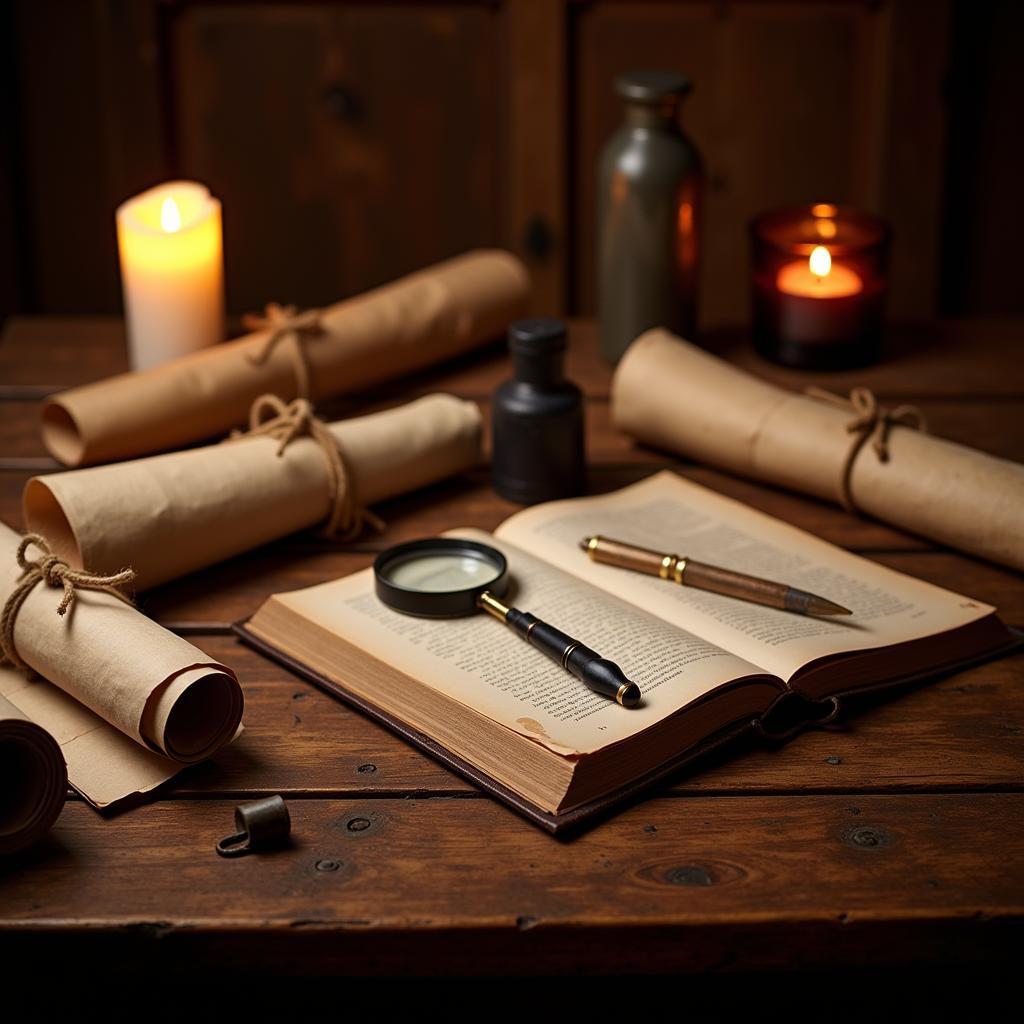Historical research involves the systematic and rigorous study of the past to uncover, analyze, and interpret events, trends, and patterns that have shaped the human experience. It delves into primary and secondary sources to construct narratives, explain causality, and shed light on the complexities of bygone eras.
Unraveling the Past: Methods and Approaches in Historical Research
 Historical Documents and Artifacts
Historical Documents and Artifacts
Historical research employs a meticulous methodology to ensure the accuracy and reliability of its findings. Researchers meticulously gather and critically evaluate evidence from a variety of sources, including:
- Primary sources: Firsthand accounts, original documents, artifacts, and other materials produced during the period being studied. These provide direct insights into the thoughts, actions, and experiences of historical actors.
- Secondary sources: Works that interpret or analyze primary sources, such as scholarly articles, books, and documentaries. These offer different perspectives and interpretations of historical events.
By meticulously examining and cross-referencing these sources, historians strive to reconstruct the past as accurately and objectively as possible. They employ a range of research methods, including:
- Archival research: Involves exploring and analyzing documents, manuscripts, photographs, and other materials preserved in archives, libraries, and museums.
- Oral history: Entails collecting firsthand accounts from individuals who lived through or witnessed historical events. Interviews, recordings, and personal testimonies offer invaluable insights into lived experiences and perspectives.
- Quantitative research: Applies statistical methods to analyze numerical data from the past, such as census records, economic indicators, or voting patterns. This approach helps identify trends, patterns, and correlations over time.
The Significance of Historical Research: Illuminating the Present, Shaping the Future
Historical research is not merely an academic pursuit; it holds profound significance for understanding the present and shaping the future:
- Contextualization: History provides context for current events, enabling us to comprehend the roots of contemporary issues and the factors that have shaped our world.
- Perspective: By studying the past, we gain valuable perspectives on human behavior, societal structures, and the cyclical nature of events. This allows us to identify patterns, anticipate potential outcomes, and make more informed decisions.
- Identity and Memory: Historical research plays a crucial role in shaping individual and collective identities. It uncovers forgotten narratives, commemorates significant events, and fosters a sense of continuity and belonging.
Careers in Historical Research: Unveiling the Past, Shaping the Future
For those captivated by the allure of history, a career in historical research offers a rewarding path.
You can find historical research vacancies in various fields, including:
- Academia: Universities and research institutions employ historians to teach, conduct research, and publish scholarly works.
- Archives and Museums: Archivists and curators preserve and manage historical collections, making them accessible to researchers and the public.
- Government and Heritage Organizations: Historians contribute to policymaking, preservation efforts, and public education by providing historical expertise.
- Journalism and Media: Historical researchers contribute to documentaries, historical dramas, and other media productions that bring the past to life.
If you’re interested in pursuing a career in historical research, consider these steps:
- Obtain a relevant degree: A bachelor’s degree in history or a related field is typically the minimum requirement. Advanced degrees, such as a master’s or doctorate, are often necessary for specialized roles. You can find an example of historical research proposal online to get a better understanding of what a career in this field might entail.
- Develop essential skills: Hone your research, analytical, writing, and communication skills.
- Gain practical experience: Seek internships or volunteer opportunities at archives, museums, historical societies, or research institutions. This will provide valuable hands-on experience.
- Network with professionals: Attend conferences, join professional organizations, and connect with historians and researchers in your field of interest. Networking can open doors to job opportunities and mentorship.
“A thorough understanding of the past is essential for navigating the complexities of the present,” emphasizes Dr. Emily Carter, a renowned historian specializing in 18th-century social movements. “Historical research equips us with the knowledge and critical thinking skills to analyze current events, make informed decisions, and shape a better future.”
Conclusion: Historical Research – A Journey Through Time
Historical research stands as a testament to humanity’s enduring fascination with the past. By unearthing forgotten narratives, analyzing historical events, and interpreting their significance, we gain a deeper understanding of ourselves, our world, and the forces that have shaped our present. Whether driven by academic curiosity or a desire to illuminate the human experience, historical research continues to captivate and inspire, reminding us of the enduring power of the past to inform our present and shape our future.
FAQ
What is the difference between primary and secondary sources?
Primary sources are firsthand accounts or original documents created during the time period being studied, while secondary sources are interpretations and analyses of primary sources.
What are some common challenges faced by historical researchers?
Historical researchers often encounter challenges such as accessing and interpreting incomplete or biased sources, navigating ethical considerations, and separating fact from fiction.
How can I get involved in historical research without a formal degree?
There are many ways to engage with history, such as volunteering at a local museum or historical society, joining a genealogy group, or attending lectures and workshops.
What are some resources for finding historical information online?
Reputable online resources include digital archives, university libraries, and government websites.
How can I ensure the accuracy of historical information I find online?
Always verify information from multiple sources, check the credibility of the source, and be wary of biased or unreliable websites.
If you need assistance with historical research, feel free to reach out to our team. You can also check out these helpful resources: usaf historical research agency, job historical researcher, historical topics to research.
Contact us:
Số Điện Thoại: 0904826292
Email: research@gmail.com
Hoặc đến địa chỉ: No. 31, Alley 142/7, P. Phú Viên, Bồ Đề, Long Biên, Hà Nội, Việt Nam.
We have a 24/7 customer support team.